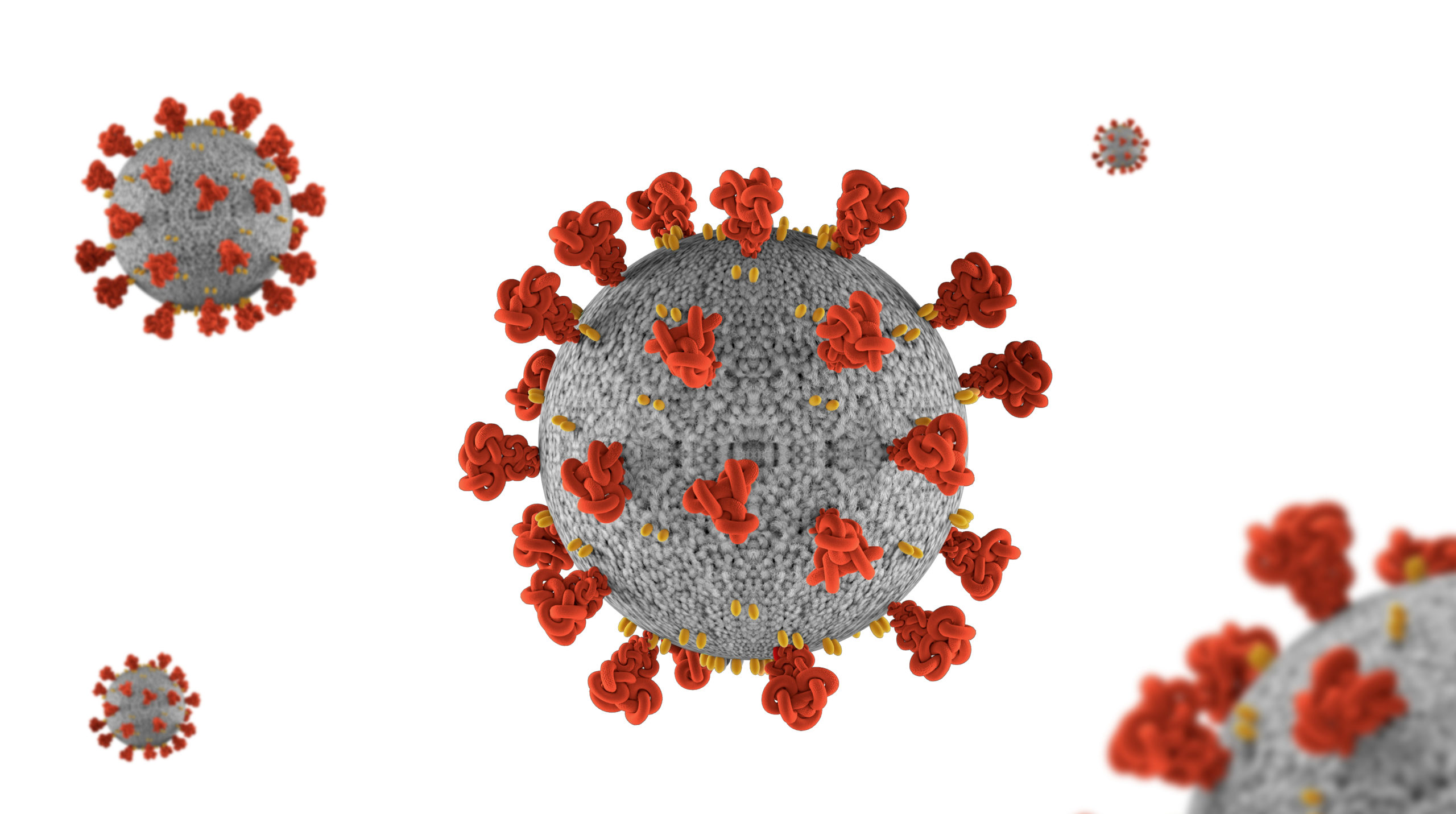This article was produced in partnership with ProPublica, a nonprofit newsroom that investigates abuses of power. New Mexico In Depth is a member of the ProPublica Local Reporting Network. Sign up to receive ProPublica’s biggest stories as soon as they’re published. And sign up to receive New Mexico In Depth stories here.
ALBUQUERQUE, N.M. — A prominent women’s hospital here violated patients’ rights by singling out pregnant Native American women for COVID-19 testing and separating them from their newborns without adequate consent until test results became available, according to a federal investigation disclosed to New Mexico In Depth and ProPublica.
Lovelace Women’s Hospital did not admit to any wrongdoing but reported that the practice has been halted. Hospital officials submitted a plan to fix problems identified by investigators, including a promise to conduct internal audits to ensure compliance with state and federal regulations and COVID-19 screening guidance.
“The Department of Health will assure that the plan of correction is fully and effectively enacted,” said New Mexico Secretary of Health Kathyleen Kunkel, the state’s highest-ranking public health official. “The Division of Health Improvement will be conducting an unannounced onsite survey to verify compliance.”
Investigators with the state Health Department, who are contracted to conduct site surveys for the U.S. Centers for Medicare and Medicaid Services, or CMS, launched their inquiry after an article by New Mexico In Depth and ProPublica reported that the hospital had targeted Native American mothers for COVID-19 testing based on their tribal-area ZIP codes, then separated them from their newborns while awaiting test results.
All patients were screened upon arrival at the hospital with forehead temperature checks and standard questionnaires. But starting in late April, according to the report, patients with home ZIP codes on the hospital’s list were treated as “persons under investigation” and tested for COVID-19.
That practice stopped May 28, investigators were told — one week after New Mexico In Depth and ProPublica first approached a hospital official about newborns being separated from Native American mothers.
The practice, while meant to stop the spread of COVID-19, was described by clinicians and health care ethicists as racial profiling. Isolating expectant mothers as though they had the virus created a stressful birth experience, a clinician noted. Separating newborns from mothers awaiting lab test results denied them early skin-to-skin contact and breastfeeding, which studies have shown can affect bonding.
Investigators concluded that the hospital failed to protect patients’ rights by implementing an “informal policy to target patients that live on Native American reservations for COVID testing, and [to] separate mother and baby while test results were pending, and did not provide clear options for these patients to request or refuse COVID testing and separation from their babies.”
Lovelace “inconsistently implemented the ZIP code list, which was limited to patients that lived on Native American lands,” investigators concluded. The “deficient practices” may have resulted in “confusion in the provision of care by hospital staff and unnecessary stress for the patients.”
It remains unclear just how many newborns were separated from their mothers as a result of the policies. Lovelace has repeatedly declined over recent months to publicly reveal that information. Investigators might not have interviewed all affected mothers, Kunkel acknowledged.
One mother told investigators that the experience was “traumatic.”
Lovelace officials defended their actions, noting test shortages and conflicting advice during the coronavirus crisis.
“At no time during the pandemic has any mother been separated from their baby without her consent or approval,” Lovelace spokeswoman Whitney Marquez said. “Those who chose to be separated while their COVID results were pending were then roomed-in with their mother once the COVID test results were returned.”
But some Native American mothers told investigators they felt pressured or misled by the hospital when it came to ZIP code-based COVID-19 testing and newborn separations pending test results.
Native American patients and family members contacted by New Mexico In Depth and ProPublica were not comfortable speaking on the record about their birth experiences at Lovelace, but the report contains statements from several women.
One Native American mother was tested for COVID-19 upon admission despite having no symptoms or known exposures. She was placed in an isolation room to begin her labor in quarantine but her test results came back negative before she gave birth, so she was not separated from her baby. She told investigators she overheard a nurse say she’d been quarantined because of her home ZIP code.
Another Native American mother, who had not been screened as high risk but whose home ZIP code was on the hospital’s list, said she was not given the option to decline the COVID-19 test and signed no consent form.
She was separated from her baby for a day pending test results.
“They told me that I could keep her with me, but it would be better to send her to the NICU to keep her safe, because they didn’t know if I had COVID or not,” that mother reported.
Another mother said she signed a consent form to send her baby to the NICU, but because she was groggy from pain medication, she could not recall whether she consented to be tested. She and her baby were separated for 18 hours.
Yet another Native American mother was tested for COVID-19 without being told she had the option of declining the test. She was told that because of her ZIP code, she was a high-risk patient and was moved to a quarantine room to deliver her baby. Only once labor had been induced with medication did a nurse-midwife explain her newborn would be separated from her until her test results were available.
She was told there were only two options, she reported to investigators: She could stop the contraction-inducing medication and sleep to await test results, or she could continue with the birth process and the newborn would be taken away “because that’s the policy.” But because labor had already been induced, there was no guarantee that ceasing medication would stop the birth process.
“I told her, ‘You are not going to do that, and you are not going to take my baby,’” she told investigators. “I was already in active labor. She then offered the waiver.”
She was only offered the waiver form allowing her to stay with her newborn after she objected to the separation policy, she said.
“It was very traumatic,” she told investigators.
Her husband was by her side but was not tested, the mother noted.
“They specifically referenced my ZIP code,” she told investigators. “I argued and said it was unfair and that I was being discriminated against … because of my ZIP code.”
CMS referred the findings to the U.S. Department of Health and Human Services’ Office for Civil Rights. CMS and the state Health Department did not immediately respond Friday to questions about the status of the Office for Civil Rights inquiry.
Investigators found the ZIP code protocol was also on the books at Lovelace’s emergency department, in addition to its labor and delivery and perinatal care units.
The hospital’s chief nursing officer told investigators that there had been no formal meetings to implement the ZIP code list with staff and that no formal policy was developed regarding its use. That conflicts with clinicians, who in interviews said that the policy was read aloud at the beginning of shifts. Clinicians reported that binders containing those scripts and other COVID-19 related records were removed from nursing stations during the early days of the investigation.
Lovelace’s plan appears to leave it largely to the hospital itself to determine whether or not the proposed improvements are met. For example, 10 Lovelace employees will be audited weekly to verify they are not utilizing ZIP codes or geographic locations to screen or test patients. If no violations of the new prohibition are identified after three weeks, then “the audits will stop with the approval of the senior leadership team.”
“The people responsible for the action plan are the same people that put the policies into place,” noted a Lovelace clinician who asked not to be identified for fear of retribution, after reading the hospital’s plan.
“Lovelace owes the Native community an apology,” that clinician said. “Regardless of their intentions, the investigation confirms Native patients were treated differently under the informal ZIP code policy and I am disappointed that Lovelace hasn’t reached out to the community to assure them they are committed to repairing trust.”






















